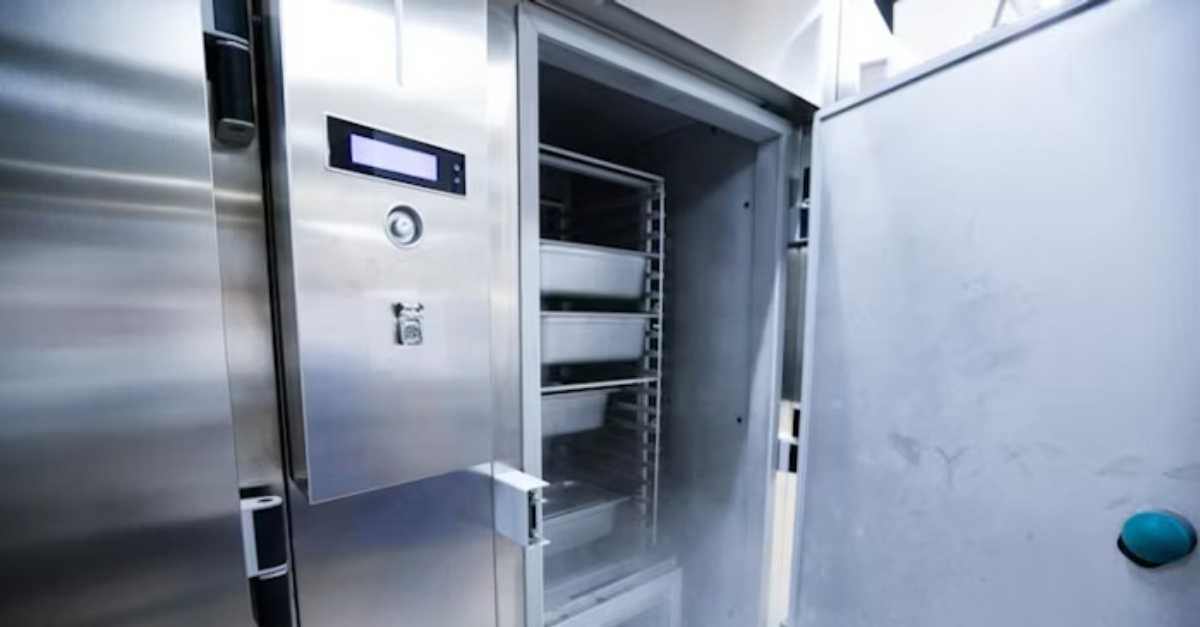
Track Refrigerant Usage and Streamline Compliance With Accruent Observe for Refrigerant Management
Avoid fines from refrigeration leaks, monitor usage, and stay compliant. vx Sustain has all your refrigeration management needs covered.
Solutions
Workplace Management Solutions
Real Estate Management Solutions
Maintenance Management Solutions
Energy Management Solutions
Engineering Document Management Solutions
Asset Management Solutions
Automate campus scheduling for classes, meetings, and exams with our EMS software.
Plan and manage conferences effortlessly with EMS software to impress guests and streamline operations.
Boost workplace flexibility and maximize space use with seamless desk and room booking.
Organize workplace or campus events smoothly, creating memorable experiences.
Optimize workspace, manage allocations efficiently, and reduce costs with our space management solutions.
Deliver projects on time and within budget by improving communication, collaboration, and efficiency with our software.
Streamline lease accounting for ASC 842, IFRS, and GASB compliance.
Manage leases efficiently by tracking key dates, analyzing costs, and ensuring compliance.
Centralize data and analytics for better insights, faster negotiations, and revenue growth.
Centralize facility and asset maintenance, automate work orders, and ensure compliance with our CMMS software.
Extend asset life, reduce downtime, and prevent costly repairs with data-driven monitoring.
Prevent equipment failures and extend asset life by detecting and addressing issues early.
Make sustainable, cost-efficient energy decisions by monitoring and optimizing power consumption.
Remotely monitor and control equipment with real-time data to predict issues, boost efficiency, and reduce downtime.
Easily share and collaborate on documents, creating a single source of truth for engineers and contractors.
Manage and analyze assets across their lifecycle to schedule maintenance, reduce downtime, and extend lifespan.
Improve visibility, automate work orders, and ensure compliance for efficient facility and asset management.
Resources
Browse our full library of resources all in one place, including webinars, whitepapers, podcast episodes, and more.
Self-Service & Support
Looking for self‑service training, best practices, helpful videos, product resources, or support? You’re in the right place.
About Accruent
Get the latest information on Accruent, our solutions, events, and the company at large.

Learn how leading retailers are using technology to reduce operational costs and improve their bottom line.
The retail industry worldwide has seen a dramatic shift in sales due to the socio-economic impact of the novel coronavirus. According to Statista, the amount of growth in retail sales had already dropped between 2019 and 2020, even before the outbreak of the virus.1
In Europe, retailers are expected to lose over €3.6 billion due to disruption caused by the health emergency, according to data gathered by LearnBonds.2 As millions of Europeans continue to stay at home to prevent the spread of coronavirus, many of them have decided to order online — taking advantage of cashless payments and digital accounts.
The European food retail sector has experienced increased sales growth amid stockpiling and much reduced eating-out. However, the increase in sales has been offset by the rising costs of food retailers’ primarily due to a surge in supply-demand, which manifests in production and operational bottlenecks and logistical problems of delivering goods to stores.
Maintaining low costs, particularly in facilities operations, is essential due to the current low margins within the retail food industry.
From our 20+ years' experience with food retailers, more than half of their maintenance spend is related on these 6 most expensive work orders:
Leading European food retailers have been early adopters of technology, which has enabled new business models and operational advancements and kept the retailers’ costs low. However, many traditional grocers find themselves having to play catch-up.
According to McKinsey, food retailers are experiencing a disruption that can be attributed to changing consumers’ preferences, increasing competition and new technologies.3 These disruptions present considerable challenges.
Over the past decade, food retail has seen an onslaught of new technology. Most grocers have not deployed cutting-edge technologies — including maintenance management solutions, advanced analytics and the Internet of Things (IoT) — as quickly and aggressively as their competitors have.
Adopting technology quickly and successfully will make the difference for future success in Europe’s mature food retail market with a 2% sales growth compared to 8% in Asia. Traditional Grocers are competing with low-price discounters like Lidl and new entrants such as Amazon who are at the vanguard of automation.
Leading retailers are looking for ways to use technology to reduce operational costs and improve their bottom line.
Historically, food retailers have run on thin profit margins, with the Food Marketing Institute (FMI) showing that grocery organisations generally produce 1% to 2% profit after taxes.
To stay on track, food retailers must reduce expenses in key asset categories where expenditures are high, and where reactive maintenance and work orders can impact budgets. Grocery stores have significant assets that they must maintain in good working order.
Being able to fix critical assets seamlessly is essential to maintaining excellent customer experience. Furthermore, preventing important equipment such as refrigeration or HVAC systems from failing by using condition-based or predictive remote monitoring will place your organisation at a strategic advantage with an advanced CAFM system that can alert you of problems before they happen.
Finding cost savings is extremely important, especially in complex areas such as compliance, work order management and general maintenance planning where budgets can balloon quickly.
A CAFM system can help food retailers streamline their maintenance operations while allowing their retail staff to focus on customer experience — helping organisations to fundamentally improve the way they manage their facilities. However, not all CAFM systems are the same.
Many CAFM systems are industry agnostic and can cater to a wide range of organization’s facilities requirements. Although an agnostic CAFM system may offer key functionality, they often lack the deep reconfigurability required for large retailers.
An innovative maintenance team using a retail CAFM system can help your organisation to not only streamline end-to-end workflows around work orders, but also help eliminate food loss.
Accruent's IoT Remote Monitoring solution, Observe, is designed to help your organization implement predictive maintenance to eliminate unplanned equipment downtime, reduce the cost of repair, predict equipment failure by up to 14 days, and eliminate unnecessary spending. Similarly, Observe's Refrigerant Management module, helps your organisation stay in compliance, maintain up to date reports and better manage their refrigerant leaks.
Grocery stores have significant assets that they must maintain every day to serve customers best, keep food safe and operate at a profit. Our food retail solution suite can help your organisation reduce operational maintenance costs, increase equipment uptime and improve the experience your customers have in-store.
Do not get left behind when it comes to implementing modern technology. Contact us today to learn more about how comprehensive retail suite of technology can help you.
1. https://www.statista.com/topics/6239/coronavirus-impact-on-the-retail-industry-worldwide/
2. https://www.mckinsey.com/industries/retail/our-insights/reviving-grocery-retail-six-imperatives
Avoid fines from refrigeration leaks, monitor usage, and stay compliant. vx Sustain has all your refrigeration management needs covered.
Discover the hidden costs in grocery refrigeration systems and how anomaly detection can create impact for your bottom line and sustainability ...
Explore the latest regulatory requirements and challenges for process manufacturing with insight into how a modern CMMS solution can be a game ...
Subscribe to stay up to date with our latest news, resources and best practices.
* To unsubscribe at any time, please use the “Unsubscribe” link included in the footer of our emails.